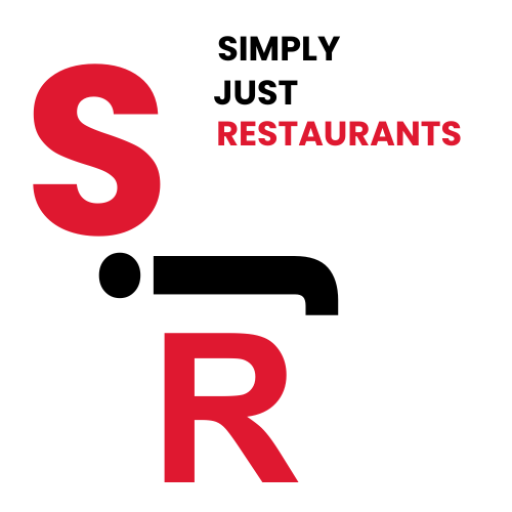- Introduction
- Understanding Food Licenses & Regulations in India
- What does Fssai stand for in Food License and Registration?
- Who needs Fssai registration?
- What Types of Fssai registration are there?
- How do I obtain a Fssai food license and registration?
- Fssai License Or Registration Charges
- How Can I Check Your Fssai Registration Status?
- Conclusion
Introduction
Food industry is the fastest growing business in India. If you are interested in investing and opening a food business there is a set of procedures you must follow to get your business up and running. The most important step is to obtain the food registration and license for your new food business.
Understanding Food Licenses & Regulations in India
If you plan to open a food-related business in India, you will need to register the business and understand all of its regulations and licenses.
A food license is also required for all businesses that deal with the F&B sector. FSSAI is a government agency that monitors all food-related businesses in India to ensure the standards and quality of the food.
If you want to get into the food industry and start a business, then you will need a license. This is issued by the Food Safety and Standards Authority of India. To continue your business, however, you will need to ensure you meet the standards of food as set out by Indian food regulations.
What does Fssai stand for in Food License and Registration?
FSSAI was created under the Food Safety and Standards Act of 2006 in order to oversee and regulate the food industry. The autonomous FSSAI was formed by the Ministry of Health and Family Welfare Government of India. It also ensures every business is subjected to quality checks, which reduces the rate of adulteration. It is in a good position because it provides food registration and licenses to all food businesses in India.
Who needs Fssai registration?
FSSAI Registration is a number of 14 digits that contains all the details about a business license. The following food businesses require this number in order to operate.
- Cold storage units
- Shops such as bakeries, confectioneries, and snack shops
- Food stalls, temporary or permanent
- Hawkers selling food products
- Milk and dairy products vendors
- Slaughtering shops
- Food processing and Manufacturing Companies
- Wholesaler or supplier of food products
- Canteens, cafes, catering
- Dhabas, restaurants, and banquet halls food services
- Kitchen Cloud
What Types of Fssai registration are there?
FSSAI licenses and registrations are categorized according to the type of food businesses, their capacity and turnover rates. This includes :-
FSSAI Basic Registration Process – The FSSAI registers food businesses with an annual turnover of under 12 lakhs rupees. The food operators must fill in the Form A.
FSSAI state license process: This FSSAI license is available to food businesses with an annual turnover between Rs 12 lakhs and 20 crores. To get registered, you must also fill out Form B.
FSSAI Central License – FSSAI Central food licenses are for businesses with a turnover of more than Rs 20 crore annually. In this situation, the applicant must fill out Form A to obtain a FSSAI food license.
Advertisements
The license granted by FSSAI is valid for a minimum of one year and up to a maximum of five years.
How do I obtain a Fssai food license and registration?
You will need to provide a number of documents to prove your identity and to proceed with FSSAI formalities. The documents required to obtain the FSSAI Basic Registration, State License, or Central License include :–
- Photographic identification of the applicant
- Certificate of business type, such as certificate for partnership , shop and establishment licence, or any other important certificate.
- It includes documents proving the business premises’ ownership, such as rent agreements and NOCs from owners. This includes the lease agreement, a NOC signed by the owner and any electricity or gas bill.
- Measures and plans for food safety management.
- List manufactured and processed foods.
- Bank account details.
- Documents supporting the application, such as the NOC of the municipality or the panchayat, the copy of the health NOC and the licence from the manufacturer.
You will also need to provide some other documents if you’re applying for an state license or a Central License. These documents are :–
- The Form B has been filled out and signed.
- A list of owners or partners, including their address, proofs of ID, and contacts.
- List your processing unit, including all dimensions.
- List the equipment or machinery that you have installed, or are planning to install.
- Authorization letter by a manufacturer who has nominated the name and address of a person responsible.
- Report the amount of water that will be used along with its portability.
- Copies of certificates from Coop Act (1861)/Multi-state Coop Act (2002).
You will also need to provide some additional information if you’re applying for the central licence. This includes :–
- Sources of Raw Materials
- Plan for recalling equipment
- Ministry of Commerce Certificate
- Document of NOC/PA from FSSAI
- IE Document from DGFT
- Form IX
- Certificate of Tourism from the Ministry of Tourism
- Document supporting the proof of turnover and transport
- Declaration form.
Fssai License Or Registration Charges
The cost of a fssai food license will likely be included in your startup costs. The cost of a FSSAI license for food depends on what type of registration your business requires. It also includes :–
- Registration with the FSSAI: You will need to pay Rs 1,000
- FSSAI state license costs between Rs. 2000 and Rs. 5000, depending on your type of business.
- Central License: You will need to pay Rs. 7500 if you require a license central for your business.
How Can I Check Your Fssai Registration Status?
ss. You can track the status of your application on the FoSCoS site. Enter the reference number that you received when you applied. Your status will then show “Registration Certificate Issued” once you have completed the application. You can also download your registration certificate when you log in to the FoSCos site.
Conclusion
Food industry is the most promising market to invest in and build a business. To start a business in the food industry, you must also obtain a license under Indian food laws and register your company. Every food business must be registered with the FSSAI, no matter how big or small it is.
This blog will help you if you want to open a new food business, but you don’t know what FSSAI stands for and the requirements it has to meet to obtain a license or registration.
The FSSAI license standards ensure that customers receive safe, healthy and wholesome food.

About Author nikita kapali
You May Also Like…
The Ultimate Guide to Hiring a Consultant Chef
Introduction Food trucks or mobile food trucks is an idea that has arrived. But, there is a issues with food safety in...
Food Safety Essentials: Addressing 5 Common Problems in Food Trucks
Introduction Food trucks or mobile food trucks is an idea that has arrived. But, there is a issues with food safety in...



